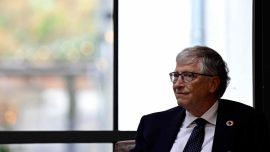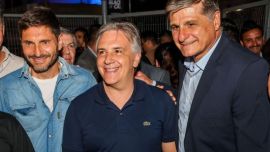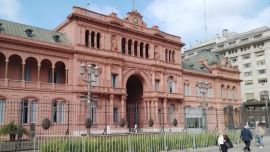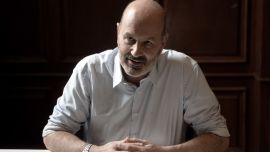Passion is an asset in politics, but politics should not be ruled by passion. Mauricio Macri has embarked in a ‘#SíSePuede’ (“Yes we can”) month-long campaign motorcade that seeks to exude optimism about the president’s uphill electoral re-election chances. It’s reasonable. After all, the president has the right – and even the obligation – to put up a fight. As he likes to say, in Magritte “Ceci n’est pas une pipe” mode, the election has not actually taken place yet.
The head of state, however, seems to be tripping over the same stone he did during his first presidential campaign, back in 2015. Namely, promising grand things he can hardly deliver – even if he wins. Let’s give him the benefit of the doubt though: he possibly did not know that reducing inflation in Argentina was not “the easiest thing to do” when he declared that back then. But it would be difficult to concede that he does not know by now that “resolving the economic problems” and “getting the economy and salaries to grow,” as he promised this week, is much easier said than done.
Explainer: despite the hopes and expectations the long #SíSePuede march is hoping to create, Macri is not only campaigning for the October 27 election, but for later on. At this stage in his political life, 16 yea rs a f ter he founded Argentina’s first 21st century party, PRO, 12 years after he was elected mayor of Buenos Aires and on the verge of completing his presidential term, Macri is fighting for a legacy he hopes will allow him to have a say in the future make-up of the opposition. Many within the Cambiemos ruling coalition are ready to get rid of him, and the president knows it. And he also knows that popular support is crucial with regards to his future standing. After all, Macri won almost eight million votes (31 percent) in the PASOs.
But beyond empty promises, the “Yes, we can” roadshow has unintentionally triggered a debate about what can and cannot be done in Argentina under the current circumstances. Alberto Fernández, the opposition candidate who is already behaving like the next president, will have to use the words of that same phrase but formatted into a question: “Can we?” The questions continue: Can Argentina avoid a new run on the peso? Can the Central Bank stabilise its foreign reserves? Can the country earn the dollars it needs to repay its debt? Can the economy grow again anytime soon?
The list goes on, but the underlying problem is that there is no straight yes/no answer for any of these questions, they are all intertwined with one another. Until he eventually becomes president-elect, Fernández will only answer with politically correct platitudes. Yes, of course we can, he will say. But being so close to victory, he is also starting to deliver some buts into his rhetoric, warning that things will not be so simple. The political world upside down: an incumbent promises the impossible, the challenger urges caution.
The best thing both Macri and Fernández can do is to tone down expectations. Most of the “can” questions will be answered with a “no” in the next presidential term. Right after he eventually takes office, Fernández will likely have to make tough choices, some of which will alienate him from people that are happily endorsing his candidacy now. He got a taste of that this week, when he asked pilots’ unions for the state-managed Aerolíneas Argentinas to call off a strike over wages scheduled for this weekend, only to be noisily ignored. It will get much tougher for him after December 10, if he wins.
Fernández will preside over a Peronist coalition that is, for the most part, unprecedented. At least three different Peronist groups will want to have a say in the direction of his administration: his own (the Albertistas), who are actually a minority; former president Cristina Fernández de Kirchner and her followers (the Cristinistas), which are the largest, most vociferous and most radical faction; and Sergio Massa’s Frente Renovador (the Massistas), who will technically act as a hinge between the other two. One major “can” question that is also political: will Fernández manage to keep them all under the umbrella of his untested leadership, even in tough times?
If that were to happen, rationality and compromise would have
to rule over passion – for once. And if recent history serves as
precedent, the last Kirchner administration (2011-2015) lost its
course when it was imbued with ideological confrontation, rather
than real-life problem solving. Fernández is telling everybody who
wants to listen that he is guided by common sense instead. His
middle-of-the-ground approach will be tested at its every step.related news





















Comments